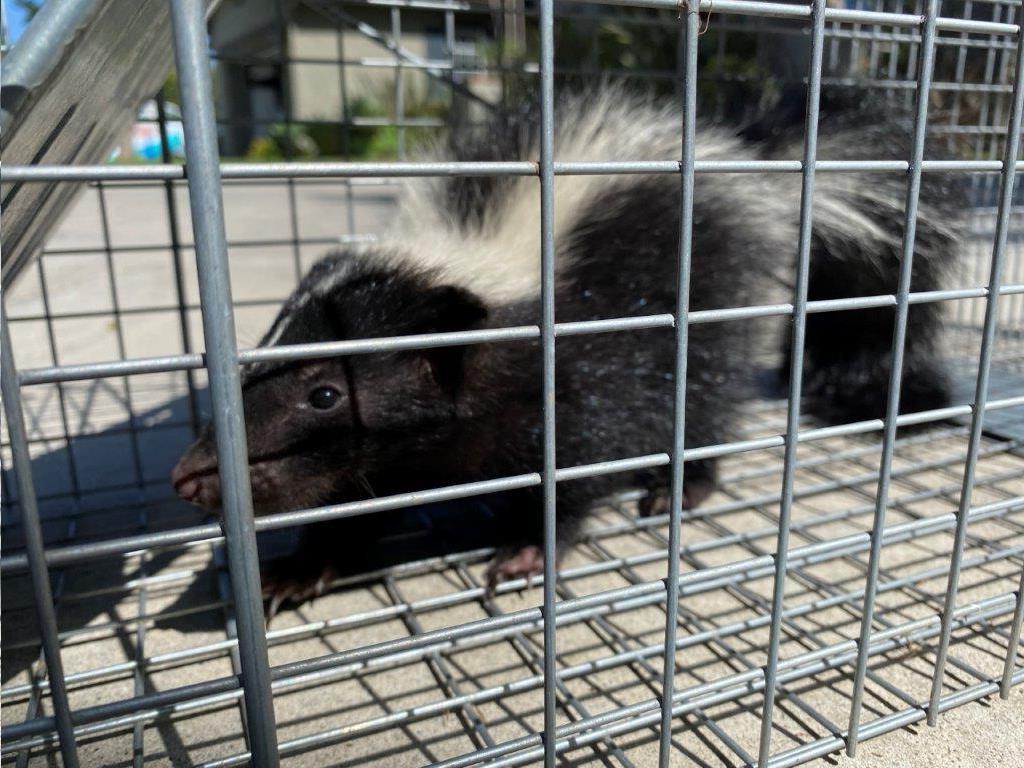
Skunks are picky eaters, and as omnivores, they get their food from both plant and animal sources. They eat what is most available at the time, and seasonally, their preferences change depending on seasons.
Skunks eat plants and animals in equal quantities during the fall and winter but feed more on animal sources in the summer and spring. Their most preferred food choices include bees, crickets, wasps, beetle larvae, and many other insects.
Food Choices
· INSECTS AND SMALL ANIMALS: Skunks are not selective eaters and will often eat animals that are smaller than they are in no peculiar manner. Some animals of choice include frogs, lizards, small snakes, grubs, mice, insects, and moles. Skunks sometimes feed on the eggs of other animals and can eat carrion.
· PLANTS: Plants make the bulk of a skunk’s diet, as they are largely available during all seasons. This, however, depends on the location of the skunk's habitat and the most prevalent source of food supply. Skunks feed on leaves, grasses, fruits, roots, grains, and in some cases, tree barks. In winter and cases of food scarcity, they may eat shrubs and largely depend on animal materials.
· GARBAGE: In urban areas where there is high competition for food and a large population of wild animals that subsist on the same food source, skunks live on garbage and food remnants. They are good scavengers and can adapt easily to food changes. They pilfer through garbage and feed on rotting food, fruits, vegetables, and other matter. They also rummage compost piles in search of grubs, dead animals, and insects.
· DEAD MATERIALS: A skunk will feed on carcasses that other mammals have killed and left behind. As survivors, they will eat any matter that keeps them alive. They are not picky, but in favorable conditions, they prefer to feed on plants such as cherries, berries, grasses, and garden crops, and also feed on grubs and insects.
How Do Skunks Get Their Food?
Skunks have strong forelimbs and claws that help them to dig their way underneath the ground where they make their homes. These also help them to open garbage lids and dig through the garbage to get their food supply.
In urban areas, they easily climb fences or dig their way into the yard and feed on vegetable gardens and pet food that you leave outdoors. In the wild, it is easy for skunks to forage for fruits and animals, and because they do not have natural predators, skunks are able to hunt freely at night.
During winter periods, skunks do not hibernate but go through a state of torpor where their body reduces activity and slows food metabolism. This allows them to sleep for longer periods and only leave their dens when they get really hungry to go in search of food. This preservation mechanism sustains them during the winter periods and prevents them from dying from starvation and hypothermia.
Pregnant skunks live as a community in maternity dens where the older skunks get pregnant and give birth to their young before the younger ones. This way, the older skunks fend for themselves, the younger mothers and members of the community protect each other until they disperse and look for new homes.
You can prevent a skunk infestation by removing skunk attractants from your yard and keeping the environment clean. Feed pets indoors or remove feeding troughs before dark. Get skunk resistant garbage cans that have lids and fixtures to the ground.
In the case of a skunk infestation, hire a professional for removal and relocation.
Go back to the Skokie wildlife removal home page.